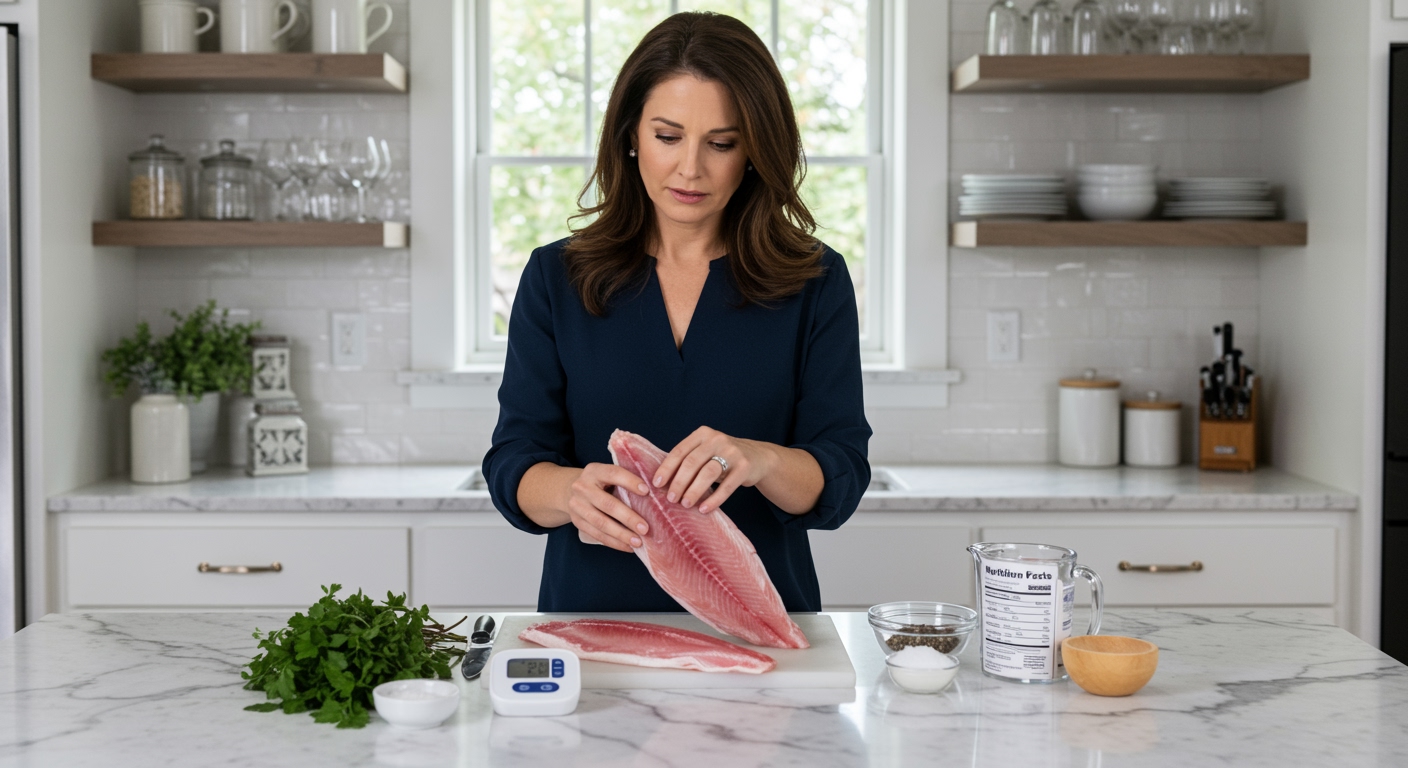✪ Key Takeaway: Paddlefish contains moderate sodium levels that may slightly raise blood pressure in sensitive individuals.
Introduction
You walk into the seafood section and spot paddlefish for the first time.
Your doctor told you to watch your blood pressure, and you wonder if this unusual fish will help or hurt your cardiovascular health.
Hi, I’m Abdur, your nutrition coach, and today I’m going to explain exactly how paddlefish affects your blood pressure and what you need to know before adding it to your diet.
What Makes Paddlefish Different From Other Fish?
Paddlefish stands apart from typical seafood choices because of its unique habitat and feeding patterns.
This ancient fish lives in freshwater rivers and feeds primarily on plankton, which affects its nutritional composition significantly.
Unlike ocean fish that naturally contain higher sodium levels, paddlefish has a moderate sodium content of approximately 60-80 milligrams per 100 grams.
The fish also contains substantial amounts of potassium and magnesium, two minerals that typically help regulate blood pressure.
However, the processing methods used for paddlefish products often involve salt curing or smoking, which dramatically increases the sodium content.
✪ Fact: Fresh paddlefish contains less sodium than most canned fish varieties available in stores.
How Does Sodium In Paddlefish Affect Blood Pressure?
Your kidneys work constants to maintain the perfect balance of sodium and water in your bloodstream.
When you consume excess sodium, your kidneys retain more water to dilute the sodium concentration, which increases your blood volume.
This extra blood volume forces your heart to pump harder, creating higher pressure against your artery walls.
Fresh paddlefish typically contains manageable sodium levels that rarely cause blood pressure spikes in healthy individuals.
However, processed paddlefish products like caviar or smoked fillets can contain 300-500 milligrams of sodium per serving, which may contribute to elevated blood pressure readings.
People with existing hypertension or salt sensitivity should monitor their response to any paddlefish products carefully.
✪ Pro Tip: Always check nutrition labels on processed paddlefish products before purchasing them.
Can The Omega-3s In Paddlefish Lower Blood Pressure?
Paddlefish contains beneficial omega-3 fatty acids that research shows can help reduce blood pressure naturally.
These healthy fats work by improving the flexibility of your blood vessel walls and reducing inflammation throughout your cardiovascular system.
EPA and DHA, the two main omega-3s found in paddlefish, help your blood vessels relax and dilate more effectively.
Studies indicate that consuming 2-3 grams of omega-3s daily can reduce systolic blood pressure by 2-8 mmHg in people with hypertension.
A typical 150-gram serving of paddlefish provides approximately 1.2 grams of omega-3 fatty acids.
The blood pressure benefits from omega-3s usually take 4-6 weeks of consistent consumption to become noticeable.
✪ Note: Omega-3 benefits work best when combined with reduced sodium intake and regular exercise.
Should You Avoid Paddlefish If You Have High Blood Pressure?
You do not need to completely avoid paddlefish if you have high blood pressure, but preparation method matters significantly.
Fresh paddlefish prepared with minimal salt can actually support your blood pressure management goals through its omega-3 content.
The key lies in choosing fresh over processed paddlefish products whenever possible.
Grilling, baking, or steaming fresh paddlefish with herbs and spices instead of salt creates a heart-healthy meal.
Avoid smoked paddlefish, paddlefish caviar, or any cured paddlefish products that contain excessive sodium levels.
Monitor your blood pressure readings for several days after eating paddlefish to understand your individual response.
If you notice consistent increases in your readings, reduce portion sizes or frequency of consumption.
✪ Pro Tip: Pair paddlefish with potassium-rich vegetables to help balance sodium effects naturally.
The Bottom Line
Fresh paddlefish contains moderate sodium levels that typically will not raise your blood pressure significantly when consumed in reasonable portions.
Smart food choices require looking beyond the surface to understand how preparation and processing affect your health goals.
Share your experiences with paddlefish or any questions about fish and blood pressure in the comments below, and I will personally respond to help guide your nutrition journey.
References
At NutritionCrown, we use quality and credible sources to ensure our content is accurate and trustworthy. Below are the sources referenced in creating this article:
- PMC: Omega-3 fatty acids and cardiovascular disease
- American Heart Association: Fish consumption and blood pressure
- PubMed: Dietary sodium and blood pressure
- City Seafood: Health benefits of caviar





